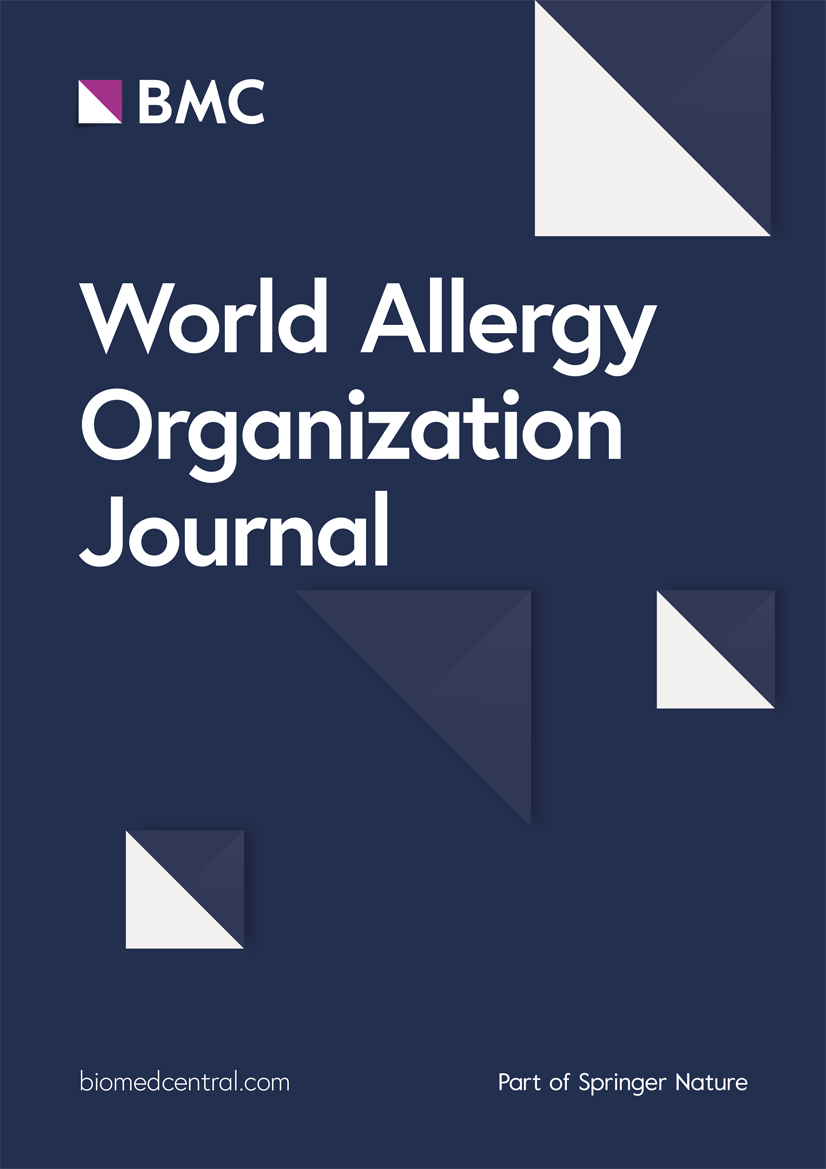Tumors in the setting of dupilumab use: A review of the literature
IF 3.9
2区 医学
Q2 ALLERGY
引用次数: 0
Abstract
Dupilumab is the first monoclonal antibody approved for treating moderate-to-severe atopic dermatitis (AD) and has significantly improved the quality of life of AD patients. However, the safety of dupilumab is yet unclear in the context of cancer. Therefore, we aimed to investigate the safety of dupilumab and its relationship with the progression and occurrence of tumors. By reviewing relevant medical records of 90 patients who had pre-existing tumors before dupilumab treatment or presented new tumors after dupilumab treatment, we found that dupilumab probably had no significant negative effects on most tumors, but several patients with Cutaneous T-cell lymphomas (CTCLs) had relatively unfavorable outcomes during dupilumab treatment. Besides, CTCLs and lymphomas accounted for the majority of patients who presented new tumors after dupilumab treatment. Several patients were first diagnosed with presumed AD and probably were the presentations of CTCL at an early stage, and they developed typical CTCL symptoms after dupilumab treatment. Finally we came to the conclusion that dupilumab is safe for most patients with cancer. However, the effect of dupilumab on CTCLs is disputable. The use of dupilumab requires individual evaluation and closely monitored. When the efficacy is poor, re-evaluation of the diagnosis, especially of CTCLs and related diseases, is necessary.
肿瘤在杜匹单抗的使用:文献综述。
Dupilumab是首个被批准用于治疗中重度特应性皮炎(AD)的单克隆抗体,并显著改善了AD患者的生活质量。然而,dupilumab在癌症治疗中的安全性尚不清楚。因此,我们旨在探讨dupilumab的安全性及其与肿瘤进展和发生的关系。通过回顾90例在dupilumab治疗前已存在肿瘤或在dupilumab治疗后出现新肿瘤的患者的相关医疗记录,我们发现dupilumab可能对大多数肿瘤没有明显的负面作用,但一些皮肤t细胞淋巴瘤(CTCLs)患者在dupilumab治疗期间预后相对不利。此外,在dupilumab治疗后出现新肿瘤的患者中,ctcl和淋巴瘤占大多数。一些患者最初被诊断为AD,可能是早期CTCL的表现,在dupilumab治疗后,他们出现了典型的CTCL症状。最后我们得出结论,dupilumab对大多数癌症患者是安全的。然而,dupilumab对ctcl的影响是有争议的。dupilumab的使用需要个体评估和密切监测。当疗效不佳时,需要重新评估诊断,特别是ctcl及相关疾病。
本文章由计算机程序翻译,如有差异,请以英文原文为准。
求助全文
约1分钟内获得全文
求助全文
来源期刊

World Allergy Organization Journal
Immunology and Microbiology-Immunology
CiteScore
9.10
自引率
5.90%
发文量
91
审稿时长
9 weeks
期刊介绍:
The official pubication of the World Allergy Organization, the World Allergy Organization Journal (WAOjournal) publishes original mechanistic, translational, and clinical research on the topics of allergy, asthma, anaphylaxis, and clincial immunology, as well as reviews, guidelines, and position papers that contribute to the improvement of patient care. WAOjournal publishes research on the growth of allergy prevalence within the scope of single countries, country comparisons, and practical global issues and regulations, or threats to the allergy specialty. The Journal invites the submissions of all authors interested in publishing on current global problems in allergy, asthma, anaphylaxis, and immunology. Of particular interest are the immunological consequences of climate change and the subsequent systematic transformations in food habits and their consequences for the allergy/immunology discipline.
 求助内容:
求助内容: 应助结果提醒方式:
应助结果提醒方式:


